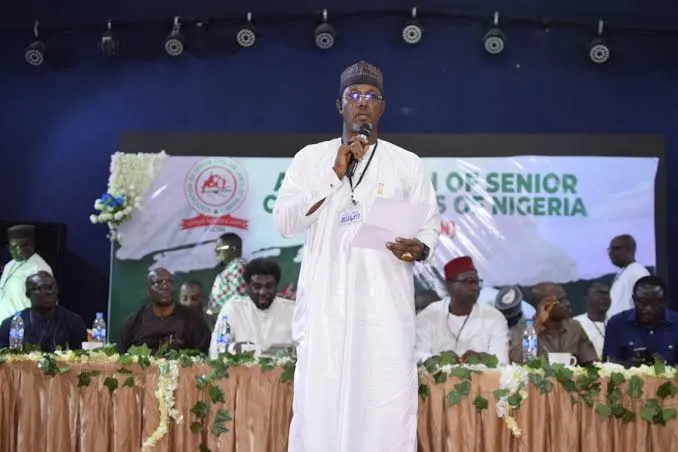The Association of Senior Civil Servants of Nigeria (ASCSN) has expressed frustration over the government’s failure to adequately address workers’ economic challenges, ranging from the implementation of the minimum wage to pension reforms.
At the ASCSN’s End of Year Celebration on Wednesday in Lagos, National President Shehu Muhammed emphasized the need for a comprehensive approach to workers’ welfare, particularly in light of rising inflation and economic hardship.
“Inflation has made the previously proposed N250,000 living wage obsolete,” Muhammed said, highlighting the growing economic strain on workers.
He also criticized governors claiming to pay N70,000 or N80,000 minimum wage, calling it “political posturing,” as these figures rarely result in meaningful improvements for workers across various levels.
Muhammed further accused the federal government of mishandling the fuel subsidy removal, stating that the policy has exacerbated the financial burden on Nigerians. “Removing subsidies without functional refineries to ensure local fuel production has deepened the economic crisis,” he said, adding, “Workers are bearing the brunt of this poorly executed policy.”
The ASCSN leader also criticized the contributory pension scheme, which he said has failed to deliver on its promises. “Employers are not remitting their share, leaving retirees stranded without benefits. We need amendments to enforce accountability and ensure that workers can access their funds upon retirement,” he added.
Additionally, Muhammed highlighted the neglect of public servants’ allowances, including transportation and travel allocations. “Traveling across the country on current allowances is impossible. These rates, set over a decade ago, no longer reflect today’s realities,” he pointed out.
The union also linked the rising unemployment and insecurity to the government’s failure to create sustainable job opportunities. “Young people are leaving school with no prospects, fueling criminal activities. The government must implement policies that create jobs and support small businesses,” Muhammed asserted.
He concluded by pledging that the union would push for greater accountability in future negotiations, including releasing a report identifying states that have failed to implement the current minimum wage. “Workers deserve more than political promises; they deserve action,” he said.

